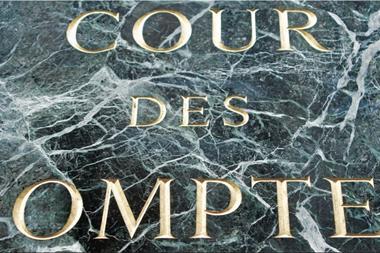The aggregate deficit of France’s main supplementary pension regimes for the private sector, Agirc-Arrco, fell slightly in 2015, to €3.02bn from €3.15bn the previous year.
The reduction is due to stabilising measures taken by the social partners in the context of an agreement reached in October 2015, according to a statement.
The accord is one of the latest attempts to address depleting reserves.
Agirc, the second-pillar retirement scheme for executives, registered a deficit of €1.49bn in 2015.
This takes into account a €1bn reduction of the technical deficit for 2015 thanks to the management of the scheme’s reserves.
The comparable deficit in 2014 for Agirc was €2bn, making for a deficit reduction of some €500m.
The €2.5bn technical deficit is after a solidarity transfer from Arrco, the sister scheme for salaried workers, and a balancing injection from AGGF*, the vehicle used to finance the additional cost of employees taking retirement before the age of 65/67.
Arrco’s deficit increased in 2015, standing at €1.5bn versus €1.14bn the previous year.
The technical deficit was €2.56bn compared with €3bn in 2014, again taking into account a solidarity transfer and payment from AGFF.
Management of the reserves allowed a €950m reduction of the technical deficit at Arrco.
Contributions to Agirc increased by 2.6% in 2015, to €19.6bn, with 0.6% of the increase due to a higher contribution rate.
Payments by the scheme were also up, by 2.5% versus 2014, and amounted to €24.3bn.
Arrco, meanwhile, collected €42bn in contributions, 2.5% more than in 2014, and paid out €47.1bn, an increase of 2.6%.
The results announcement follows that of a new president at Agirc, which will be headed by Frédéric Agenet, director of social relations and human resources for France at Airbus and president of Humanis.









